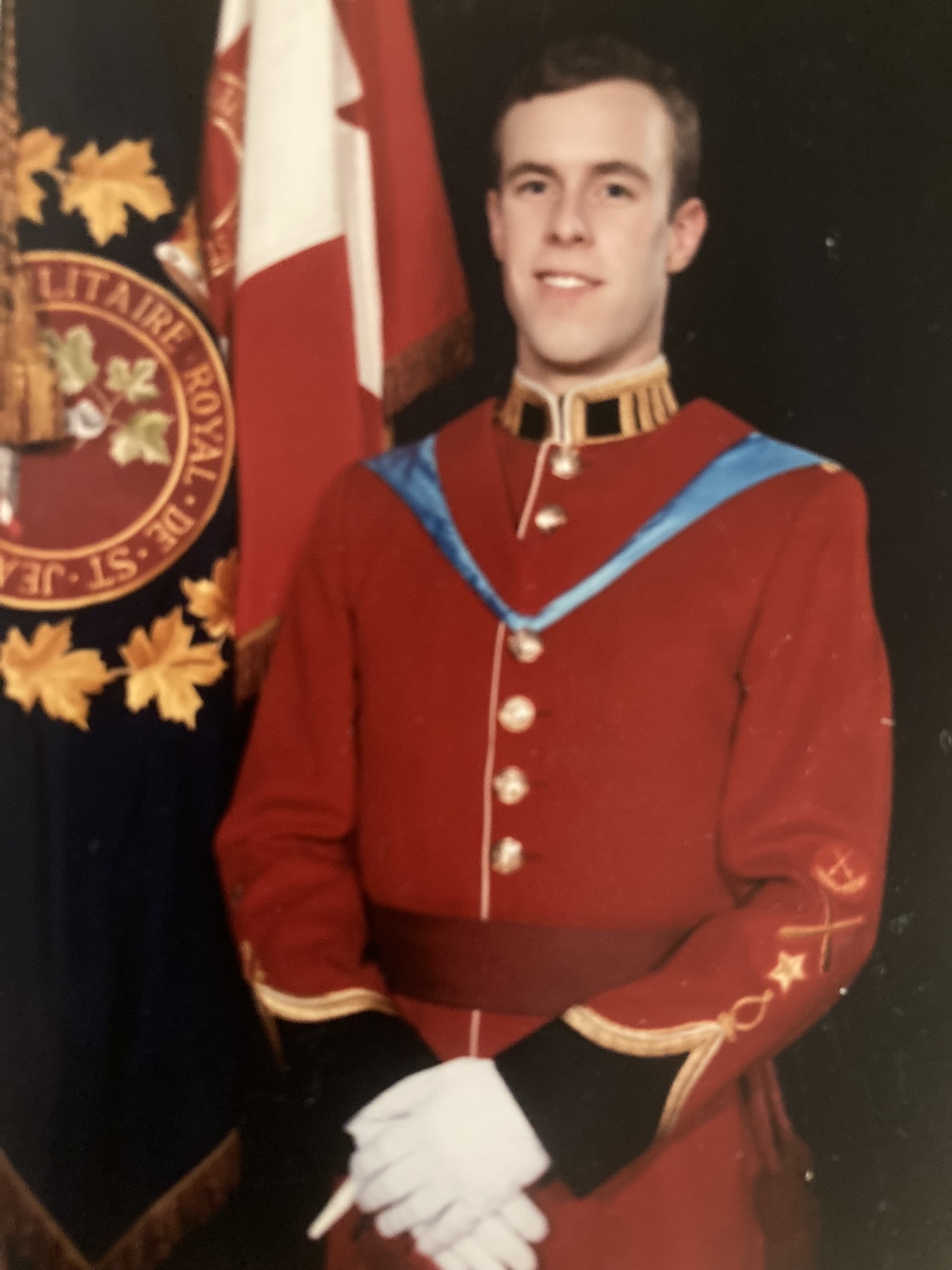
The Trailblazer Podcast celebrates the accomplishments and milestones of notable alumni of Canada’s Military Colleges and provides a platform for them to share their stories and contribute to building future leaders for Canada and the world.
Earlier this Spring, we sat down with Major General (ret) Scott Clancy who graduated from RMC Saint-Jean in 1989. Scott has had a fascinating career that saw him serving in multiple squadrons as as a tactical helicopter pilot; as General Officer on the RCAF staff; Deputy Commander of the Alaskan NORAD Region; Director of Operations for all NORAD in Colorado Springs; and, most lately, author and speaker on leadership.
In a wide-ranging conversation, Scott shares his thoughts on leadership, the importance of falling flat on your face, team sports, Ed Sheeran, and the future of the Canadian Military Colleges.
For Scott, his journey into leadership began at RMC St-Jean, where he learned many early lessons, including three he says have shaped his life.
“Anything is possible where there’s a team involved, and that sense of being able to overcome the impossible, especially in the face of the enemy, was the first thing that I learned. The second thing was that knowledge, whether book knowledge or practical knowledge, amplifies everything that the team has. The third thing I learned is that leadership is a force multiplier, that you can have a great team but if you have a great leader on top of that, that just amplifies it.”
Scott says the early leadership experiences provided by the military college are essential, citing both the opportunity to observe different leadership styles (good and bad) and develop his own.
“These are the things that led me to being a better leader because I made a lot of mistakes… I didn’t have a golden path leading me on to some enlightened state. It was me falling flat on my face, screwing up,” he says with a laugh. Scott believes strongly in the experiential learning that comes from those early responsibilities and the accompanying correction of mistakes. “I had people pick me up and say, that didn’t work so well for you. Here’s why. Here’s how you have to change.”
Given this position, it is perhaps unsurprising that Scott thinks that Canada’s Military Colleges have an important role to play in shaping Canada’s future leaders. Which is not to say he believes the institutions are perfect. “There’s been a lot of scrutiny placed on the military colleges with respect to inappropriate conduct. Absolutely. Let’s root that out. At the heart of Truth, Duty Valour, is truth about what’s going on, being honest about it. The valour part is having the gumption and the resilience to say we’re going to fix this.”
Scott’s book, Developing Coaching Leaders, draws on his 37 years of experience leading and mentoring teams in the military… and in sports. Indeed, he sees an important crossover between coaching and leading. Playing and coaching showed him the importance of tenacity in the face of defeat; reinforced that talent (on the court) does not necessarily translate into influence or leadership; and highlighted how individual effort contributes to team success. “What I saw again and again was, if people were willing to put in the time and the effort and the determination, what the team got out of it was so much more than just the sum total of their individual efforts…Watching your determination drive the people beside you, you know, that it spurs them on, that’s something that that sports always brings back.”
He is a firm believer that leadership is a skill that can be developed, rather than an innate characteristic, drawing an unusual parallel. “One of my favorite musicians is Ed Sheeran. He’ll go back in time and show you just how bad he was when he was young and say that the only way — the only way — that you get better at this is practice, practice, practice, practice, practice… Look at all these people who are getting the Rookie of the Year Award Grammy after 37 years [of working at their craft]… How long does it take to make a 37-year General? 37 years, same as that musician! To me, these are learned skills.”
To listen to the RMCAA Trailblazer podcast with Scott Clancy, click below.
Read our eVeritas interview with Scott here.

